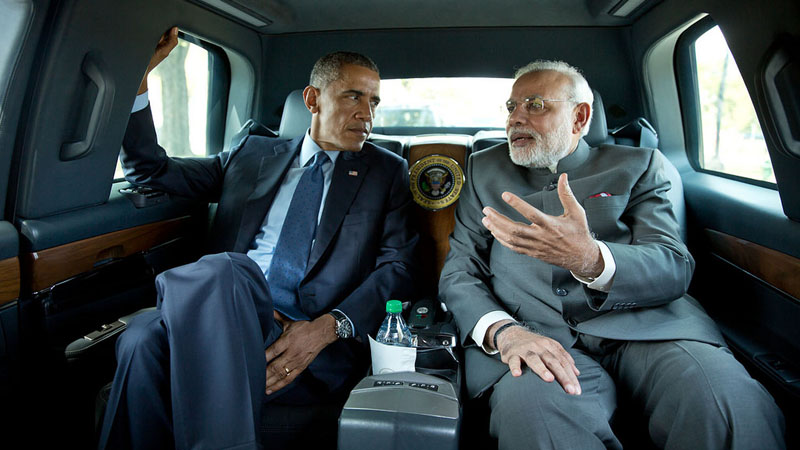The wonder is it took so long. After months of prevarication, India prime minister Narendra Modi announced this week the country would formally join the Paris climate agreement on 2 October.
Turns out it’s a fairly simple procedure, requiring cabinet approval. That’s not what diplomats said on the sidelines of the G20, arguing India needed time to work the deal past lawmakers.
So what has been going on? Why has the world’s fourth largest emitter of greenhouse gases – and a key reason why last year’s deal was passed relatively smoothly – suddenly gone all out to join the US, China, Brazil in signing up?
Few know the insides of Indian climate diplomacy like Nitin Sethi, environment correspondent for the Business Standard, and few government officials will like his take on events – tweeted earlier today.
Delhi climate professionals will read and weep.
Some views on India's decision to ratify #ParisAgreement : Modi finally made the only decision he could in the first place…1
— Nitin Sethi (@nit_set) September 26, 2016
2. The linking to NSG membership was as silly as others' previously linking #ParisAgreement to India's membership of the UNSC seat
— Nitin Sethi (@nit_set) September 26, 2016
3. There were opportunities earlier when negotiating the #ParisAgreement to make it a more balanced and ambitious pact.
— Nitin Sethi (@nit_set) September 26, 2016
4. India's political leadership was too feeble at the critical junctures to ensure that #ParisAgreement is more favourable to equitous
— Nitin Sethi (@nit_set) September 26, 2016
5. "Climate Justice" exists as a phrase but not in meaning in the #ParisAgreement. In fact its a global joke how the concept was treated
— Nitin Sethi (@nit_set) September 26, 2016
6. India had one of the finest negotiating teams at #ParisAgreement but with a weak/unsure political leadership at helm
— Nitin Sethi (@nit_set) September 26, 2016
7. The real work now is at home, to build a cogent Energy Policy. Right now its a dance in the dark
— Nitin Sethi (@nit_set) September 26, 2016
8. The first step to a cogent Energy Policy is to put out info for public to understand how India's #ParisAgreement commitments were set
— Nitin Sethi (@nit_set) September 26, 2016
9. Ratification is just the beginning. There is a tough 4 year period ahead of global negotiations and setting domestic policy in place
— Nitin Sethi (@nit_set) September 26, 2016
10. There is not going to be any worthwhile public funding transfers from developed countries that India can depend upon
— Nitin Sethi (@nit_set) September 26, 2016
11. India looked silly during the ratification drama. Half this political weight put in crafting #ParisAgreement would have been invaluable
— Nitin Sethi (@nit_set) September 26, 2016
12. Instead it was put behind theatrics such as International Solar Mission. There is still time to work beyond image building on #Climate
— Nitin Sethi (@nit_set) September 26, 2016
